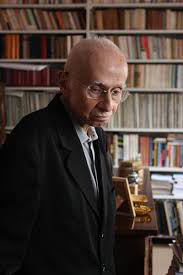Jacob Gorender
Country:
Brazil
Company:
Government
His father, Nathan, was from Ukraine, and his mother, Ana, was from Bessara- bia. At the age of 18, he dropped out of law school to fight in World War I in Ita- ly as a volunteer member of the Brazilian Expeditionary Force. In Brazil, he served as a professional in the Brazilian Communist Party (PCB), of which he became a prominent leader on its Central Committee. After the coup d'etat of 1964, he was ex- pelled from the PCB leadership in 1967, participated in the founding of the Brazilian Revolutionary Communist Party. He was arrested and barbarically tortured during the military regime for his militancy. He was a prominent Marxist intellectual at the time of his PCB activism, after his release from prison, he devoted himself to the in-
vestigation ofBrazilian social formation. His reference works are - A burguesia bra-
sileira (1981), Combates nas trevas (1987), but also O Escravismo Colonial (1978). In his work Marxism without Utopia (1999), Jacob Gorender presented a synthesis of
his recent theoretical conception, which would be the last, given that he did not make
any rectification until his death. Marxism without utopia deals with topics such as the
nature of the working class, the principle of historical determinism, thedifference be-
tween the transition to capitalism and the transition to socialism, and the characteris-
tics of socialist society. He proposes that the working class have a "reformist" ontology rather than a "revolutionary" one and criticizes historical determinism.
